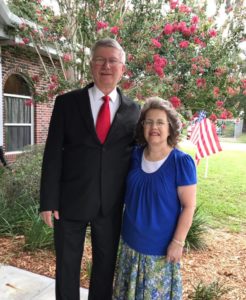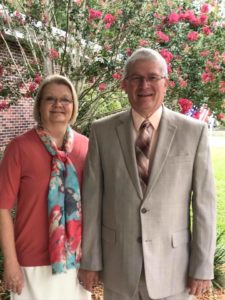Bro. David Price has been a church planter in France for many years now. We appreciate his wisdom and the thoughts he has shared in the article below on the vital importance of The Church Planter and His Character.
Introduction
Church planting is one of the most challenging, exhilarating, disappointing, and consuming ministries that God can call one of His servants to accomplish. Although I cannot imagine being a part of any other ministry that places such rigorous demands on God’s servant, the challenge is so fulfilling because of God’s leading. The church planter is on the front line, accomplishing God’s plan for this age of grace. Charles Ryrie said it best:
“The importance of the church can scarcely be overstated. It is that which God purchased with the blood of His own Son (Acts 20:28). It is that which Christ loves, nourishes, and cherishes (Eph. 5:25, 29), and which He shall present to Himself blameless in all her glory one day (v. 27). Building His church constitutes Christ’s principal work in the world today (Matt. 16:18).”
Church planting is the direct accomplishment of the Great Commission (Matthew 28:18-20; Mark 16:15; Luke 24:46-48; Acts 1:8), making disciples by going, baptizing, and teaching. God’s servant must remember that all other types of ministries should help to accomplish God’s primary goal and purpose–church planting. The world has a great need for a vibrant church that is evangelistic, Christocentric, dynamic, and engaged in society to reproduce itself. Through this type of church, the Gospel of Jesus Christ reaches the lost, bringing them to a saving knowledge of the Savior. The question to ask is what are the requisite qualities of a church planter involved in this type of church?
The Church Planter and His Character
The Lord calls exceptional men to be church planters. The demands of a church-planting ministry are so great that only those with exceptional character and godly qualities will accomplish this great endeavor. In addition to the qualifications found in 1 Timothy 3 and Titus, three character qualities should be present in the church planter’s life: (1) spiritual maturity, (2) learning capacity, and (3) vision.
One area that is of utmost importance is spiritual maturity. The church planter must exemplify maturity in his:
Perseverance
Emotional stability
Marital and family health
Prayer life
The church planter must persevere when there seems to be no fruit (Colossians 1:11-12). He must understand that if God has called him, He will bring fruit in due season if the church planter remains faithful. The church planter must also reveal spiritual maturity in his emotional stability (Proverbs 25:28, 12:16). Through disappointments and even failures, he must remember that God is faithful. The church planter must have his emotions based on the things of the Lord and not the circumstances that are before him. This stability will also play an important role in the church planter’s marriage (1 Timothy 5:8; Proverbs 11:29). Simply put, the church planter must have a marriage that those around him envy. He must be 100% devoted to his wife and family, who are his greatest and first ministry.
These three aspects of the church planter’s spiritual character will only be possible if he has a prayer life that reveals an intimate, daily walk with God (1 Chronicles 16:11). The importance of this foundational truth is impossible to express. Prayer makes or breaks the church planter and his ministry.
Another aspect of the character of the church planter is his ability to be a good student. He must be a student of not only God’s Word but also the culture in which he is serving. Charles-Daniel Maire defines culture as “…everything which, through education, passes from one generation to the next, leaving a footprint that expresses the identity of a human being and allows him to recognize himself as a member of the group to which he belongs by birth or by choice.”
Church planting and especially cross-cultural church planting requires men who adapt to the culture within which they serve whether they are in West Virginia or in Europe. A key element to being successful in soul winning is understanding the person in his cultural context and overcoming cultural barriers to share the gospel. The apostle Paul clearly explains this principle in 1 Corinthians 9:19–23. This principle of studying is also seen in language acquisition on the foreign mission field. Many times, foreign church planters, in their zeal, rush and do not effectively learn the language. Without proper language skills, the most important message cannot be communicated effectively, often resulting in the national’s rejection of the message.
The last element of the church planter’s character that is of utmost importance is vision (Psalm 5:3). A vision for the ministry will cause the church planter to be unsatisfied with the status quo and put all of the effort possible on God’s program instead of man’s. A vision will also unite the church plant around one objective using its energy to attain that goal. A byproduct is that much of the discord that may exist in a church will often disappear if everyone is striving to reach the same goal. Vision also gives a purpose for every single activity, from cleaning the bathrooms to teaching a Sunday school class.
Conclusion
The importance of church planting cannot be overemphasized. The church planter’s character also cannot be overemphasized. God needs exceptional men through whom His plan for this age of grace will be accomplished. The result will be a church that is evangelistic, Christocentric, dynamic, and engaged in society able to reproduce itself.
If this has been a blessing to you or you would like to share your thoughts with Bro. Price, you can contact him via email here.





